The dos and don'ts of visiting Russia for the first time
Sep 24, 2021 • 6 min read
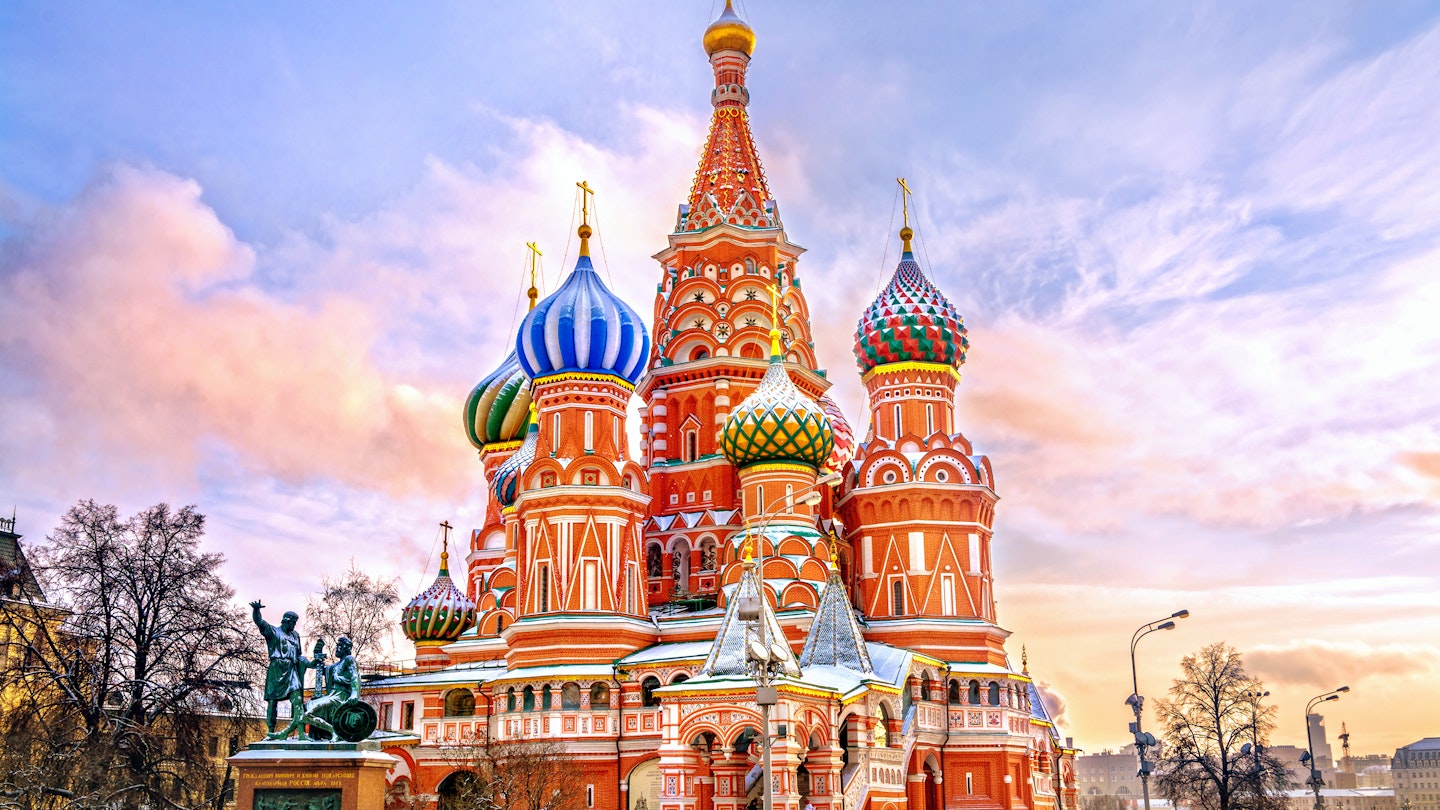
These top tips can help you make the most of your visit to Russia © MarinaDa / Shutterstock
The world’s largest country beguiles and fascinates with its world-class art, epic landscapes and multifaceted society. You may also find that perseverance and a sense of humour will go a long way in enriching your first-time Russian travel experience. From the things you absolutely must do before you travel to the things we recommend that you steer clear of once you're there, here are some top tips for avoiding common pitfalls when visiting Russia .
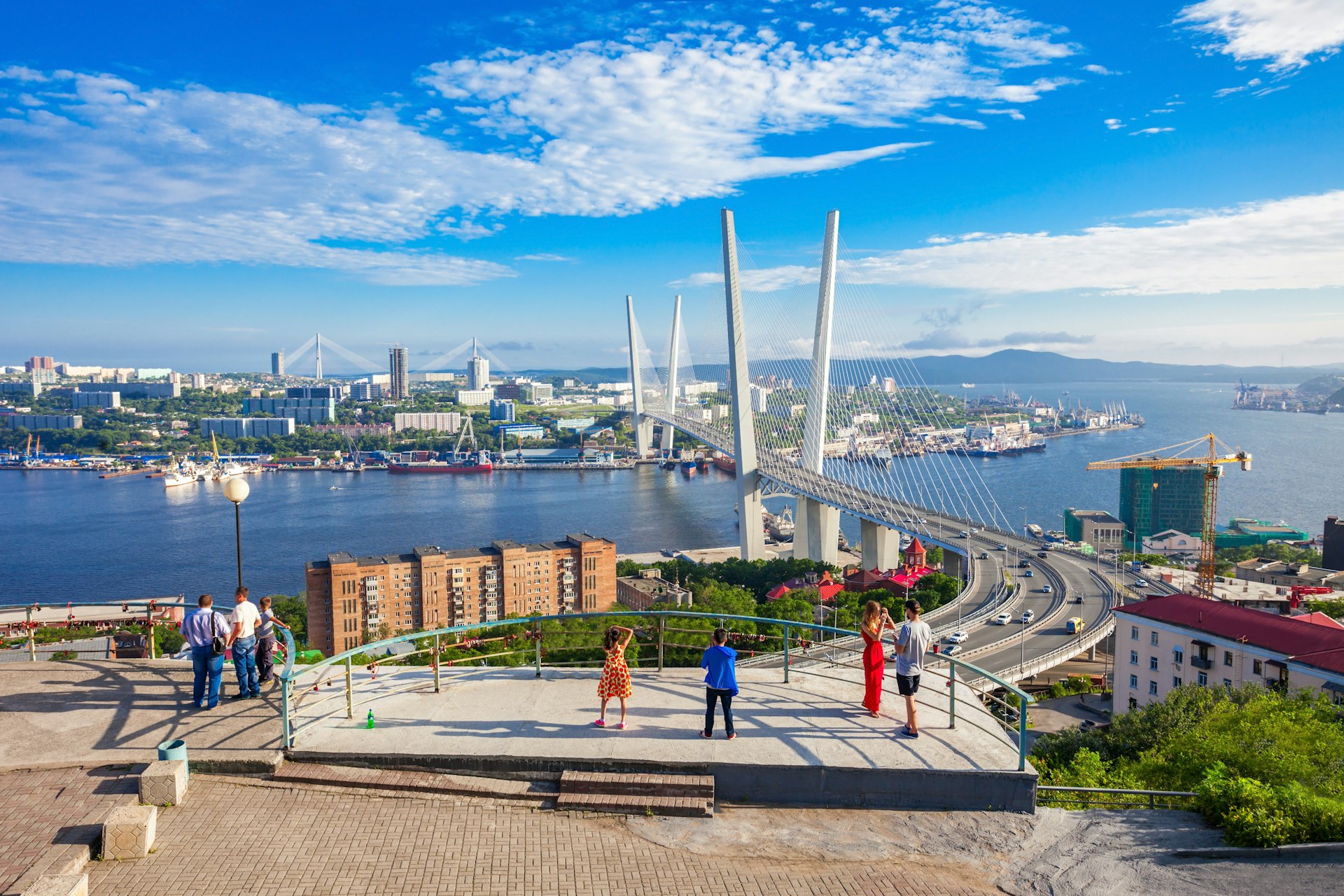

DO apply for a visa early and register on arrival
Visas must be applied for in advance by all visitors. How you do that varies depending on your nationality and where in Russia you are traveling to. Travelers from many countries, including the UK and US, need to apply in-person at an embassy or consulate and provide biometric data. An e-visa may be an option for passport-holders from 52 countries, which include many EU travelers, as well as those from China, India, Japan, Singapore, and some Middle Eastern countries. However these are temporarily suspended due to COVID-19. Check with your local Russian embassy or consulate for confirmation, or get up-to-date information here .
You can apply at the last moment, but it may cost you a fortune. Start the application process at least a month before your trip and consider using a specialist travel agency to arrange visas and make key transport bookings. Every visitor to Russia should have their visa registered within seven days of arrival, excluding weekends and public holidays. The obligation to register is with your hotel or hostel, or landlord, friend or family if you’re staying in a private residence. Also keep in mind that your visa entry and exit dates will be written according to European calendar convention (day/month/year) as opposed to the American style, so don't get mixed up or over-stay your visa.

DO check the events calendar
During major holidays – the first week in January (between New Year’s Day and Orthodox Christmas) and the first week or two of May (around Labour Day, or May Day, and Victory Day) – Moscow and St Petersburg empty out. Despite this, both cities are festive during these times, with parades, concerts and other events, but museums and other institutions may have shortened hours or be shut altogether. May to September is the best time to visit St Petersburg but mid-June is when the city is irresistible, with the White Nights revelry at its peak.

DO dress up for a night out
We can’t guarantee you’ll make it past Moscow’s "face control" (the term comes from clubs trying to "save face" by only letting in patrons who meet their image standards) but you can better your chances of getting in to the top clubs by making a sartorial effort – high heels and skirts for women, all black for men. Russians also make an effort when they go to the theater or a posh restaurant – you should do likewise to fit in.

DO learn the Cyrillic alphabet
Making an effort to familiarize yourself with the Cyrillic alphabet repays tenfold. It will help you decode street and metro signs, maps, timetables and menus, even if you don't know many Russian phrases. While digital tools like the Russian Metro app and Google Translate make it easier than ever to visit countries where you don't speak or read the language, brushing up beforehand can reduce frustration and endear you to the locals.
Rideshare options such as Taxovichkoff and Yandex Taxi upended the taxi industry in Russia as much as anywhere else. That means less pressure to know the Russian phrases you'd need to hails cabs in the streets, but it still is wise to learn key phrases in case there's a navigation mixup, like the address of your hotel or intersection of your short-term apartment rental.

DO expect to spend your money
Moscow is one of the most expensive cities in the world and St Petersburg is not a cheap destination either; wallet-thinning shock is common at many restaurants and hotels. As a foreigner you’ll also find yourself paying more than a Russian for some museums – often as much as 10 times the price Russians pay. If you’re a student, flashing your ID can save you money at museums and other institutions.
You can save on dining out a few different ways. Many restaurants offer "business lunches" that are great value and very filling. Several years ago the trend for " anti-cafes " cropped up in larger Russian cities, and there are still a few where you pay by the minute for coffee, biscuits, and a little wi-fi time.
Food markets that blend farmers markets and food halls are popular, and are often found in architecturally significant vintage buildings. You can shop for ingredients to cook yourself or sample cuisines from around the world from dozens of vendor stalls. Many food markets are less expensive than sit-down restaurants and let you try a wider variety of local and international dishes.

DON’T ask for a mixer with your vodka
Few traditions in Russia are as sacrosanct as the drinking of vodka , and any foreign notions of drinking it with orange juice or tonic are anathema to your average Russian. If you need something to wash it down, you can chase it with a lemon, a pickle or, perhaps, a separate glass of water. Vodka is drunk in swift shots, not sipped. It’s traditional (and good sense) to eat a little something after each shot, so order some vodka snacks too.

DON’T be disrespectful in a church
Working churches are open to everyone, but as a visitor you should take care not to disturb any devotions or offend sensibilities. There's no face control, but women should cover their heads and bare shoulders when entering a church. In some monasteries and churches it’s also required for a woman to wear a skirt – wraps are usually available at the door. Men should remove their hats in church and not wear shorts.
DON’T take photos of government buildings
Be very careful about photographing stations, official-looking buildings and any type of military-security structure – if in doubt, don’t snap! Travelers have been arrested and fined for such innocent behaviour.
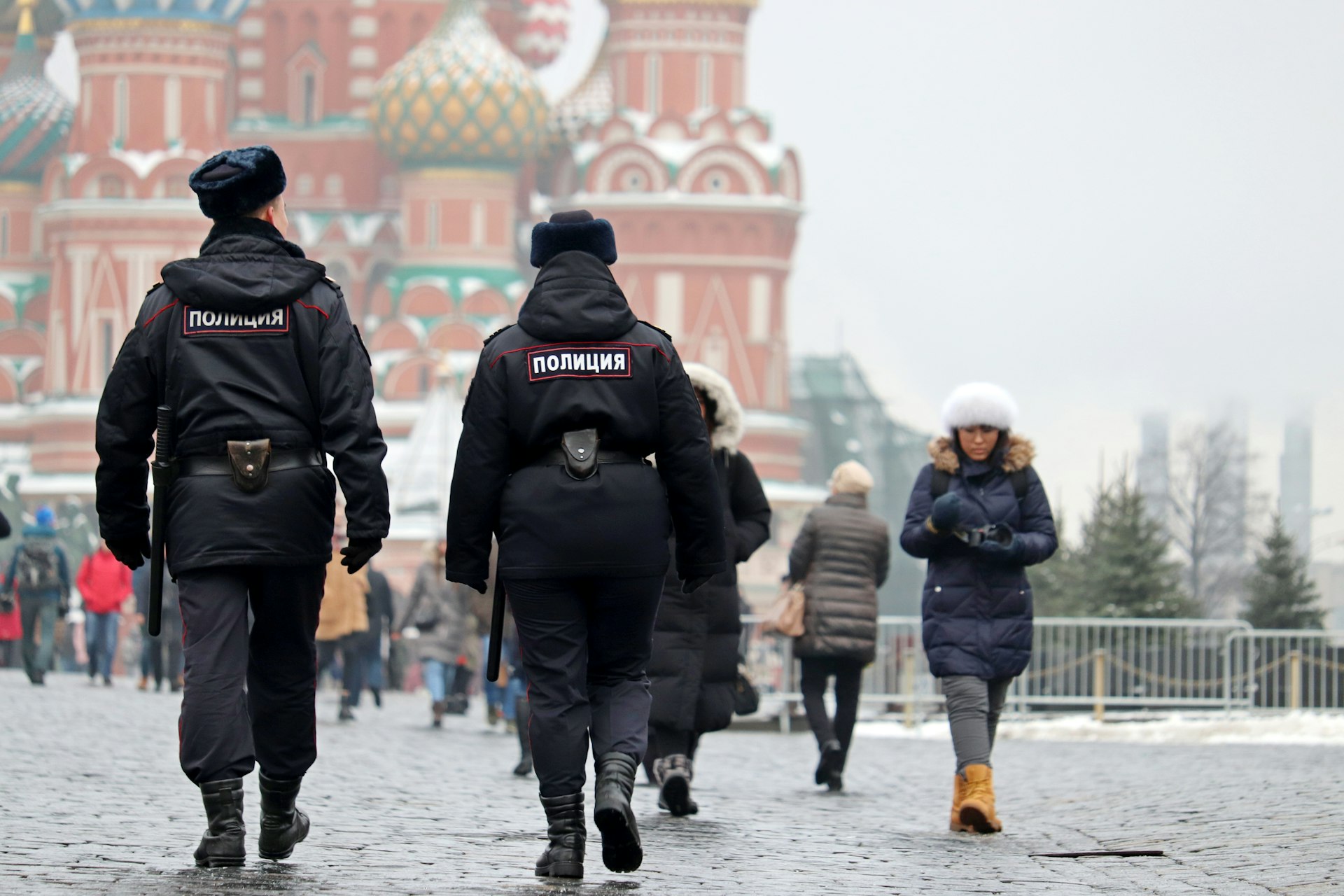
DON’T be surprised if you’re stopped by the police
Although new laws were passed in 2011 that ostensibly reconfigured Russia's police and their interactions with the public, it's still wise to carry a photocopy of your passport, visa and registration – not to mention travel documents that indicate how and when you'll return home – and present them when an officer demands to see your documents. You may also see special tourist police near major attractions like the Red Square , who have special training and language skills to assist travelers.
If you're issued a fine, Russian authorities might expect an "unofficial payment" to expedite their service on the spot, as opposed to handling the matter later at the station. Either way, always ask for an official receipt, and consider carrying the phone number for your country's embassy in case matters get more complicated.
You might also like: How to spend a perfect weekend in Moscow How to plan and pack for the Trans-Siberian Railway Beyond the Trans-Siberian: travelling Russia's unexplored northwest by train
This article was originally published in August 2009.
This article was first published Oct 30, 2019 and updated Sep 24, 2021.
Explore related stories
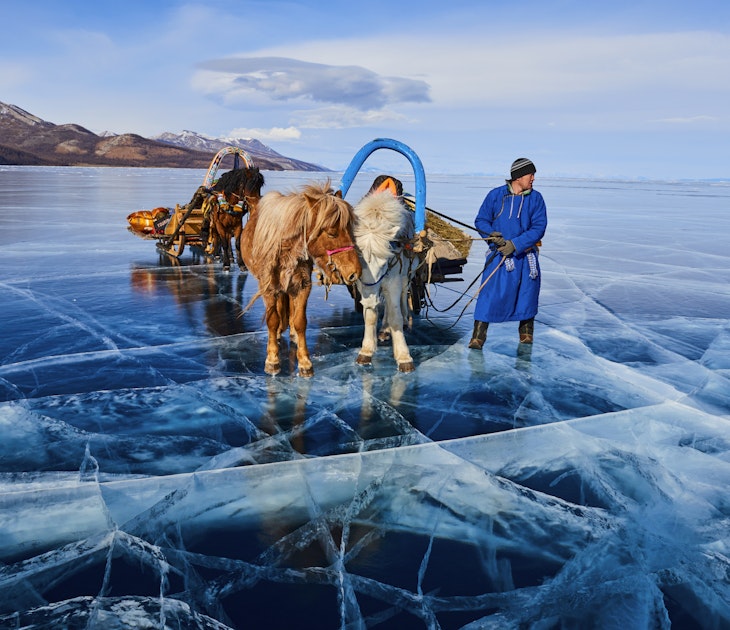
Tips & Advice
Aug 30, 2023 • 9 min read
The staggering expanse of Mongolia can make it difficult to decide where to go first. Start your bucket list with these 12 unmissable places to visit.

Aug 3, 2023 • 7 min read

Jul 18, 2023 • 5 min read

Jul 3, 2023 • 3 min read

Jul 3, 2023 • 8 min read

Mar 30, 2022 • 4 min read

Feb 17, 2022 • 9 min read

Dec 29, 2021 • 7 min read

Oct 24, 2021 • 4 min read

Sep 20, 2021 • 5 min read
An official website of the United States government
Here’s how you know
Official websites use .gov A .gov website belongs to an official government organization in the United States.
Secure .gov websites use HTTPS A lock ( Lock Locked padlock icon ) or https:// means you’ve safely connected to the .gov website. Share sensitive information only on official, secure websites.

U.S. citizens traveling abroad
Find out about visas, the Trusted Traveler programs, what to do in an emergency, and more.
Visas for U.S. citizens traveling abroad
If you are a U.S. citizen planning to travel abroad, you may need a visa to enter a foreign country. Learn how to find your destination's visa requirements.
Save time getting through airport security with Trusted Traveler Programs
When you become a member of a Trusted Traveler Program such as TSA Precheck and Global Entry, you can spend less time in airport security lines and at border crossings.
COVID-19 international travel advisories
If you plan to visit the U.S., you do not need to be tested or vaccinated for COVID-19.
Emergency help for Americans abroad
Find out what to do in an emergency in another country, including assistance, money and more.
International driver’s license for U.S. citizens
If you are a U.S. citizen planning to drive while traveling abroad, find out the driver’s license requirements for the country you are visiting.
Do you need a passport to travel to or from U.S. territories or Freely Associated States?
The travel documents you need as a U.S. citizen to travel to or from a U.S. territory or Freely Associated State depend on your destination.
Authenticate an official document for use outside the U.S.
Apostilles and authentication certificates show U.S. documents are genuine. Learn when to use each.

An official website of the United States government
Here’s how you know
Official websites use .gov A .gov website belongs to an official government organization in the United States.
Secure .gov websites use HTTPS A lock ( Lock A locked padlock ) or https:// means you’ve safely connected to the .gov website. Share sensitive information only on official, secure websites.
- Fact Sheets
Frequently Asked Questions: Guidance for Travelers to Enter the U.S.
Updated Date: April 21, 2022
Since January 22, 2022, DHS has required non-U.S. individuals seeking to enter the United States via land ports of entry and ferry terminals at the U.S.-Mexico and U.S.-Canada borders to be fully vaccinated for COVID-19 and provide proof of vaccination upon request. On April 21, 2022, DHS announced that it would extend these requirements. In determining whether and when to rescind this order, DHS anticipates that it will take account of whether the vaccination requirement for non-U.S. air travelers remains in place.
These requirements apply to non-U.S. individuals who are traveling for essential or non-essential reasons. They do not apply to U.S. citizens, Lawful Permanent Residents, or U.S. nationals.
Effective November 8, 2021, new air travel requirements applied to many noncitizens who are visiting the United States temporarily. These travelers are also required to show proof of COVID-19 vaccination. All air travelers, including U.S. persons, must test negative for COVID-19 prior to departure. Limited exceptions apply. See CDC guidance for more details regarding air travel requirements.
Below is more information about what to know before you go, and answers to Frequently Asked Questions about cross-border travel.
Entering the U.S. Through a Land Port of Entry or Ferry Terminal
Q. what are the requirements for travelers entering the united states through land poes.
A: Before embarking on a trip to the United States, non-U.S. travelers should be prepared for the following:
- Possess proof of an approved COVID-19 vaccination as outlined on the CDC website.
- During border inspection, verbally attest to their COVID-19 vaccination status.
- Bring a Western Hemisphere Travel Initiative compliant border crossing document, such as a valid passport (and visa if required), Trusted Traveler Program card, a Department of State-issued Border Crossing Card, Enhanced Driver’s License or Enhanced Tribal Card when entering the country. Travelers (including U.S. citizens) should be prepared to present the WHTI-compliant document and any other documents requested by the CBP officer.
Q. What are the requirements to enter the United States for children under the age of 18 who can't be vaccinated?
A: Children under 18 years of age are excepted from the vaccination requirement at land and ferry POEs.
Q: Which vaccines/combination of vaccines will be accepted?
A: Per CDC guidelines, all Food and Drug Administration (FDA) approved and authorized vaccines, as well as all vaccines that have an Emergency Use Listing (EUL) from the World Health Organization (WHO), will be accepted.
Accepted Vaccines:
- More details are available in CDC guidance here .
- 2 weeks (14 days) after your dose of an accepted single-dose COVID-19 vaccine;
- 2 weeks (14 days) after your second dose of an accepted 2-dose series;
- 2 weeks (14 days) after you received the full series of an accepted COVID-19 vaccine (not placebo) in a clinical trial;
- 2 weeks (14 days) after you received 2 doses of any “mix-and-match” combination of accepted COVID-19 vaccines administered at least 17 days apart.
Q. Is the United States requiring travelers to have a booster dose to be considered fully vaccinated for border entry purposes?
A: No. The CDC guidance for “full vaccination” can be found here.
Q: Do U.S. citizens or lawful permanent residents need proof of vaccination to return to the United States via land POEs and ferry terminals?
A: No. Vaccination requirements do not apply to U.S. citizens, U.S. nationals, or Lawful Permanent Residents (LPRs). Travelers that exhibit signs or symptoms of illness will be referred to CDC for additional medical evaluation.
Q: Is pre- or at-arrival COVID testing required to enter the United States via land POEs or ferry terminals?
A: No, there is no COVID testing requirement to enter the United States via land POE or ferry terminals. In this respect, the requirement for entering by a land POE or ferry terminal differs from arrival via air, where there is a requirement to have a negative test result before departure.
Processing Changes Announced on January 22, 2022
Q: new changes were recently announced. what changed on january 22.
A: Since January 22, 2022, non-citizens who are not U.S. nationals or Lawful Permanent Residents have been required to be vaccinated against COVID-19 to enter the United States at land ports of entry and ferry terminals, whether for essential or nonessential purposes. Previously, DHS required that non-U.S. persons be vaccinated against COVID-19 to enter the United States for nonessential purposes. Effective January 22, all non-U.S. individuals, to include essential travelers, must be prepared to attest to vaccination status and present proof of vaccination to a CBP officer upon request. DHS announced an extension of this policy on April 21, 2022.
Q: Who is affected by the changes announced on January 22?
A: This requirement does not apply to U.S. citizens, U.S. nationals, or U.S. Lawful Permanent Residents. It applies to other noncitizens, such as a citizen of Mexico, Canada, or any other country seeking to enter the United States through a land port of entry or ferry terminal.
Q: Do U.S. citizens need proof of vaccination to return to the United States via land port of entry or ferry terminals?
A: Vaccination requirements do not apply to U.S. Citizens, U.S. nationals or U.S. Lawful Permanent Residents. Travelers that exhibit signs or symptoms of illness will be referred to CDC for additional medical evaluation.
Q: What is essential travel?
A: Under the prior policy, there was an exception from temporary travel restrictions for “essential travel.” Essential travel included travel to attend educational institutions, travel to work in the United States, travel for emergency response and public health purposes, and travel for lawful cross-border trade (e.g., commercial truckers). Under current policy, there is no exception for essential travel.
Q: Will there be any exemptions?
A: While most non-U.S. individuals seeking to enter the United States will need to be vaccinated, there is a narrow list of exemptions consistent with the Centers for Disease Control and Prevention (CDC) Order in the air travel context.
- Certain categories of individuals on diplomatic or official foreign government travel as specified in the CDC Order
- Children under 18 years of age;
- Certain participants in certain COVID-19 vaccine trials as specified in the CDC Order;
- Individuals with medical contraindications to receiving a COVID-19 vaccine as specified in the CDC Order;
- Individuals issued a humanitarian or emergency exception by the Secretary of Homeland Security;
- Individuals with valid nonimmigrant visas (excluding B-1 [business] or B-2 [tourism] visas) who are citizens of a country with limited COVID-19 vaccine availability, as specified in the CDC Order
- Members of the U.S. Armed Forces or their spouses or children (under 18 years of age) as specified in the CDC Order; and
- Individuals whose entry would be in the U.S. national interest, as determined by the Secretary of Homeland Security.
Q: What documentation will be required to show vaccination status?
A: Non-U.S. individuals are required to be prepared to attest to vaccination status and present proof of vaccination to a CBP officer upon request regardless of the purpose of travel.
The current documentation requirement remains the same and is available on the CDC website . Documentation requirements for entry at land ports of entry and ferry terminals mirror those for entry by air.
Q: What happens if someone doesn’t have proof of vaccine status?
A: If non-U.S. individuals cannot present proof of vaccination upon request, they will not be admitted into the United States and will either be subject to removal or be allowed to withdraw their application for entry.
Q: Will incoming travelers be required to present COVID-19 test results?
A: There is no COVID-19 testing requirement for travelers at land border ports of entry, including ferry terminals.

Q: What does this mean for those who can't be vaccinated, either due to age or other health considerations?
A: See CDC guidance for additional information on this topic. Note that the vaccine requirement does not apply to children under 18 years of age.
Q: Does this requirement apply to amateur and professional athletes?
A: Yes, unless they qualify for one of the narrow CDC exemptions.
Q: Are commercial truckers required to be vaccinated?
A: Yes, unless they qualify for one of the narrow CDC exemptions. These requirements also apply to bus drivers as well as rail and ferry operators.
Q. Do you expect border wait times to increase?
A: As travelers navigate these new travel requirements, wait times may increase. Travelers should account for the possibility of longer than normal wait times and lines at U.S. land border crossings when planning their trip and are kindly encouraged to exercise patience.
To help reduce wait times and long lines, travelers can take advantage of innovative technology, such as facial biometrics and the CBP OneTM mobile application, which serves as a single portal for individuals to access CBP mobile applications and services.
Q: How is Customs and Border Protection staffing the ports of entry?
A: CBP’s current staffing levels at ports of entry throughout the United States are commensurate with pre-pandemic levels. CBP has continued to hire and train new employees throughout the pandemic. CBP expects some travelers to be non-compliant with the proof of vaccination requirements, which may at times lead to an increase in border wait times. Although trade and travel facilitation remain a priority, we cannot compromise national security, which is our primary mission. CBP Office of Field Operations will continue to dedicate its finite resources to the processing of arriving traffic with emphasis on trade facilitation to ensure economic recovery.
Q: What happens if a vaccinated individual is traveling with an unvaccinated individual?
A: The unvaccinated individual (if 18 or over) would not be eligible for admission.
Q: If I am traveling for an essential reason but am not vaccinated can I still enter?
A: No, if you are a non-U.S. individual. The policy announced on January 22, 2022 applies to both essential and non-essential travel by non-U.S. individual travelers. Since January 22, DHS has required that all inbound non-U.S. individuals crossing U.S. land or ferry POEs – whether for essential or non-essential reasons – be fully vaccinated for COVID-19 and provide related proof of vaccination upon request.
Q: Are sea crew members on vessels required to have a COVID vaccine to disembark?
A: Sea crew members traveling pursuant to a C-1 or D nonimmigrant visa are not excepted from COVID-19 vaccine requirements at the land border. This is a difference from the international air transportation context.
Entering the U.S. via Air Travel
Q: what are the covid vaccination requirements for air passengers to the united states .
A: According to CDC requirements [www.cdc.gov/coronavirus/2019-ncov/travelers/noncitizens-US-air-travel.html | Link no longer valid], most noncitizens who are visiting the United States temporarily must be fully vaccinated prior to boarding a flight to the United States. These travelers are required to show proof of vaccination. A list of covered individuals is available on the CDC website.
Q: What are the COVID testing requirements for air passengers to the United States?
A: Effective Sunday, June 12 at 12:01 a.m. ET, CDC will no longer require pre-departure COVID-19 testing for U.S.-bound air travelers.
- Border Security
- Transportation Security
- Airport Security
- Coronavirus (COVID-19)
- Customs and Border Protection (CBP)
- Transportation Security Administration (TSA)
- #Luxury travel
- #Unusual Moscow
- #Jewish Heritage
- #Russian traditions
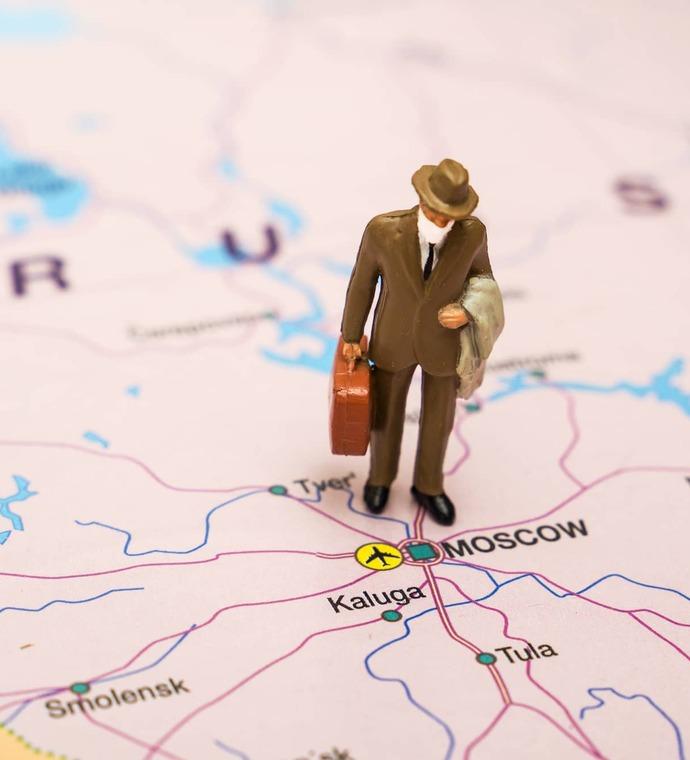
Coronavirus (COVID19) travel Information
- #Travel tips
When planning your trip, it is essential to inform the ongoing coronavirus (COVID-19) situation. Below is the latest information regarding the current situation.
- Border closing
Russia closed its borders for foreign visitors from 18.03.2020 till further notice. Here are the few exceptions: foreigners studying in Russia; diplomatic workers and members of their families; relatives of a deceased person, provided that they have documents confirming their relations; transit passengers; foreigners seeking medical treatment; international ship, cargo, train, sea crew members performing their work duties; specialists who carry out adjustment and maintenance of imported equipment; holders of special visas, issued to visit the funeral of a person, permanently residing in Russia; Russian citizens and permanent residents.
- Border opening
Russia's borders are open for the citizens of certain countries with which Russia has resumed regular air travel.
The international flight connection reopened between Russia and several counties from the particular list approved by the government. Today the list of such countries includes 50 countries:
- Turkey
- Switzerland
- South Korea
- Tanzania (temporarily no air connection)
- Azerbaidzhan
- Tadzhikistan
- Saudi Arabia
- North Macedonia
Citizens of the foreign states, according to the list, can visit Russia if they enter the Russian Federation from the country of their citizenship through air checkpoints across the state border of the Russian Federation.
- Special requirements
On the departure to Russia, travelers must show a negative result for a COVID test conducted within 72 hours before arrival English or Russian). Russian citizens arriving without a test result must submit to this test within 72 hours of arrival. Foreign citizens will not be accepted onboard without this test.
There is no quarantine upon arrival.
- Boutique Hotels in St. Petersburg read
- Travel tips read
- Quick facts about Russia read

We use cookies to improve your experience on our Website, tailor content, and measure advertising. By continuing to use our Website, you accept our Privacy Policy .
Your request has been sent successfully! Our travel expert will contact you shortly.
This site is protected by reCAPTCHA and the Google Privacy Policy and Terms of Service apply.
Secret Russian foreign policy document urges action to weaken the U.S.

Russia’s Foreign Ministry has been drawing up plans to try to weaken its Western adversaries, including the United States, and leverage the Ukraine war to forge a global order free from what it sees as American dominance, according to a secret Foreign Ministry document.
In a classified addendum to Russia’s official — and public — “Foreign Policy Concept of the Russian Federation,” the ministry calls for an “offensive information campaign” and other measures spanning “the military-political, economic and trade and informational psychological spheres” against a “coalition of unfriendly countries” led by the United States.
“We need to continue adjusting our approach to relations with unfriendly states,” states the 2023 document , which was provided to The Washington Post by a European intelligence service. “It’s important to create a mechanism for finding the vulnerable points of their external and internal policies with the aim of developing practical steps to weaken Russia’s opponents.”
The document for the first time provides official confirmation and codification of what many in the Moscow elite say has become a hybrid war against the West. Russia is seeking to subvert Western support for Ukraine and disrupt the domestic politics of the United States and European countries, through propaganda campaigns supporting isolationist and extremist policies, according to Kremlin documents previously reported on by The Post . It is also seeking to refashion geopolitics, drawing closer to China, Iran and North Korea in an attempt to shift the current balance of power.
Using much tougher and blunter language than the public foreign policy document, the secret addendum, dated April 11, 2023, claims that the United States is leading a coalition of “unfriendly countries” aimed at weakening Russia because Moscow is “a threat to Western global hegemony.” The document says the outcome of Russia’s war in Ukraine will “to a great degree determine the outlines of the future world order,” a clear indication that Moscow sees the result of its invasion as inextricably bound with its ability — and that of other authoritarian nations — to impose its will globally.
The Foreign Policy Concept of the Russian Federation , which was published March 31, 2023, and approved by Russian President Vladimir Putin, deploys bland diplomatic language to call for “the democratization of international relations,” “sovereign equality” and the strengthening of Russia’s position on the global stage. Though the Foreign Policy Concept also charges that the United States and “its satellites” have used the Ukraine conflict to escalate “a many-years-long anti-Russia policy,” it also states that “Russia does not consider itself an enemy of the West … and has no ill intentions toward it.”
Russia hopes the West will “realize the lack of any future in its confrontational policy and hegemonistic ambitions, and will accept the complicated realities of the multipolar world,” the public document states.
The Russian Foreign Ministry said in a statement that it did not comment “on the existence or nonexistence of internal ministry documents” and on the progress of work on them. “As we have stated several times on different levels, we can confirm the mood is to decisively combat the aggressive steps taken by the collective West as part of the hybrid war launched against Russia,” the ministry added.
Russia’s recent veto against extending U.N. monitoring of sanctions against North Korea over its nuclear weapons and ballistic missiles program, effectively ending 14 years of cooperation, was “a clear sign” that the work contemplated in the classified addendum is already underway, said a leading Russian academic with close ties to senior Russian diplomats. The academic spoke on the condition of anonymity to discuss sensitive deliberations in Moscow.
“Russia can create difficulties for the U.S. in many different regions of the world,” the academic said. “This is about the Middle East, northeast Asia, the African continent and even Latin America.”
The creation of the Foreign Policy Concept and the classified addendum followed a call to Russian academics for policy suggestions. One proposal submitted in February 2023 to the Foreign Ministry by the deputy head of Moscow’s Institute for the Commonwealth of Independent States, which maintains close ties to Russia’s security apparatus, laid out Russia’s options more bluntly still.
The academic, Vladimir Zharikhin, called for Russia to “continue to facilitate the coming to power of isolationist right-wing forces in America,” “enable the destabilization of Latin American countries and the rise to power of extremist forces on the far left and far right there,” as well as facilitate “the restoration of European countries’ sovereignty by supporting parties dissatisfied with economic pressure from the U.S.”
Other points in the policy proposal, which was also provided to The Post, suggested that Moscow stoke conflict between the United States and China over Taiwan to bring Russia and China closer together, as well as “to escalate the situation in the Middle East around Israel, Iran and Syria to distract the U.S. with the problems of this region.”
Zharikhin declined to discuss his proposal.
Western officials have warned that Russia has been escalating its propaganda and influence campaigns over the past two years as it seeks to undermine support for Ukraine. As part of that, it has sought to create a new global divide, with Russian propaganda efforts against the West resonating in many countries in the Middle East, Africa, Latin America and Asia.
“I think the U.S. was convinced that the rest of the world — North and South — would support the U.S. in the conflict with Russia and it turned out that this was not true,” Zharikhin told The Post in an earlier interview. “This demonstrates the single polar world is over, and the U.S. doesn’t want to come to terms with this.”
For Mikhail Khodorkovsky — the longtime Putin critic who was once Russia’s richest man until a clash with the Kremlin landed him 10 years in prison — it is not surprising that Russia is seeking to do everything it can to undermine the United States. “For Putin, it is absolutely natural that he should try to create the maximum number of problems for the U.S.,” he said. “The task is to take the U.S. out of the game, and then destroy NATO. This doesn’t mean dissolving it, but to create the feeling among people that NATO isn’t defending them.”
The long congressional standoff on providing more weapons to Ukraine was only making it easier for Russia to challenge Washington’s global power, he said.
“The Americans consider that insofar as they are not directly participating in the war [in Ukraine], then any loss is not their loss,” Khodorkovsky said. “This is an absolute misunderstanding.”
A defeat for Ukraine, he said, “means that many will stop fearing challenging the U.S.” and the costs for the United States will only increase.
- How Russia learned from mistakes to slow Ukraine’s counteroffensive September 8, 2023 How Russia learned from mistakes to slow Ukraine’s counteroffensive September 8, 2023
- Before Prigozhin plane crash, Russia was preparing for life after Wagner August 28, 2023 Before Prigozhin plane crash, Russia was preparing for life after Wagner August 28, 2023
- Inside the Russian effort to build 6,000 attack drones with Iran’s help August 17, 2023 Inside the Russian effort to build 6,000 attack drones with Iran’s help August 17, 2023


- AUTH ENTICATION
Visa Expediting Service
U.s. passport services.
New U.S. Passport
Passport Pages
Passport Re-Issue
Replace Mutilated Passport
Passport Renewal
Lost/Stolen Passport
Second Valid Passport
Child/Minor Passport
Need Help Deciding?
Document Legalization
TDS provides legalization and authentication services to US Corporations, US Citizens and foreign nationals on all documents that will be used in foreign countries.
Get Started
DIY Photo Service
Stop wasting time driving here and there to get your visa and passport photos taken, only to find out that the size is wrong, and now your application is delayed or rejected.
Use the TravelDocs DIY Photo Service to get back guaranteed perfect visa and passport photos in one business day.
Expedited visa and passport processing so simple —
You're already almost there…®

Welcome to Travel Document Systems® Your Portal to the World® TDS
For more than 30 years TDS has served travel professionals as well as corporate and individual international travelers. We offer expedited passport and visa services for Russia, China, and the world, and we also help travelers with their document expediting needs.
We are your "Portal to the World"® for the processing of urgent online applications for visas, U.S. passports, and authentication of documents for use abroad. We can expedite many tourist or business visas and U.S. passports in as little as 24 hours.
Put TDS to work for you today!

Corporate Accounts Available
Travel Document Systems is on the vanguard of visa and passport processing, offering superior customer service, attention to detail, and professional handling of all aspects of our client’s needs. Open a Corporate Billing Account Today.
Corporate Travel
Great management tools for all your travelers.
Travel Agencies
Collect commission on your direct sales and referrals
Tour Operators
Lorem ipsum dolor sit amet, consectetur adipiscing metus elit.

Travel with peace of mind.
Get affordable travel medical insurance and make sure you’re covered away from home.

Check out the Fatemeh Recommends lifestyle blog, published by our Chief Marketing Officer, Fatemeh LeTellier.
Latest Post from Fatemeh Recommends

Improve people's lives globally
Travel Document Systems has partnered with Tourism Cares to positively impact the people and places you visit.
Tourism Cares' mission is to advance the travel industry's social impact to help people and places thrive. They invest in a positive impact for destinations and local communities in the U.S. and around the world. They mobilize the industry through a tourism Disaster Recovery program to support places like the Caribbean, and a Global Network program driving economic development by connecting travel leaders to local social enterprises in places like Jordan, Nepal, and Peru and provide mentoring and scholarships in hospitality and tourism.
Update April 12, 2024
Information for u.s. citizens in the middle east.
- Travel Advisories |
- Contact Us |
- MyTravelGov |
Find U.S. Embassies & Consulates
Travel.state.gov, congressional liaison, special issuance agency, u.s. passports, international travel, intercountry adoption, international parental child abduction, records and authentications, popular links, travel advisories, mytravelgov, stay connected, legal resources, legal information, info for u.s. law enforcement, replace or certify documents.
Tourism & Visit
Study & Exchange
Other Visa Categories
U.S. Visa: Reciprocity and Civil Documents by Country
Share this page:
Afghanistan
Antigua and Barbuda
Bosnia and Herzegovina
Brunei Darussalam
Burkina Faso
Cayman Islands
Central African Republic
Congo the Democratic Republic of the
Curaçao
Czech Republic
Côte d'Ivoire
Dominican Republic
El Salvador
Equatorial Guinea
Guinea-Bissau
Iran, Islamic Republic of
Israel, Jerusalem, the West Bank and Gaza
Korea, Democratic People's Republic of
Lao People's Democratic Republic
Liechtenstein
Marshall Islands
Micronesia, Federated States of
Moldova, Republic of
Netherlands
New Caledonia
New Zealand
North Korea
North Macedonia
Palestinian Authority
Papua New Guinea
Philippines
Russian Federation
Saint Kitts and Nevis
Saint Lucia
Saint Vincent and the Grenadines
Sao Tome and Principe
Saudi Arabia
Sierra Leone
Sint Maarten (Dutch part)
Solomon Islands
South Africa
South Korea
South Sudan
Switzerland
Timor-Leste
Trinidad and Tobago
Turkmenistan
Turks and Caicos Islands
United Arab Emirates
United Kingdom
Virgin Islands, British
Wallis and Futuna
What is Reciprocity?
Nonimmigrant visa applicants from certain countries*/areas of authority may be required to pay a visa issuance fee after their application is approved. These fees are based on the principle of reciprocity: when a foreign government imposes fees on U.S. citizens for certain types of visas, the United States will impose a reciprocal fee on citizens of that country*/area of authority for similar types of visas.
How Do I Find Out if I Have to Pay a Reciprocity Fee?
To view the Reciprocity Page for your country* of nationality, select your country*/area of authority from the list of countries on the left side menu. On the Reciprocity Page, select the Visa Classifications tab from the column on the left
Select the type of visa you have applied for, such as a B-1/B-2 (temporary visa for business or pleasure), F-1 (student visa), etc. from the drop down menu:
The reciprocity information for that country*/area of authority will display:
What does this table tell me?
Visa Classification: The type of nonimmigrant visa you are applying for.
Fee: The reciprocity fee, also known as the visa issuance fee, you must pay. This fee is in addition to the nonimmigrant visa application fee (MRV fee).
Number of Entries: The number of times you may seek entry into the United States with that visa. “M” means multiple times. If there is a number, such as “One”, you may apply for entry one time with that visa.
Validity Period: This generally means the visa is valid, or can be used, from the date it is issued until the date it expires, for travel with that visa. If your Validity Period is 60 months, your visa will be valid for 60 months from the date it is issued.
What is the Difference between the Reciprocity Fee and the Nonimmigrant Visa Application Fee?
The nonimmigrant visa application fee, also known as the MRV fee, is a nonrefundable fee paid by most applicants for U.S. visas, whether the application is approved or refused. It covers the costs associated with processing a U.S. visa application. Current nonimmigrant visa application fees can be found on our Fees – Visa Services webpage. (This webpage also lists the few visa categories for which application fees are not required.)
While most visa applicants are required to pay the visa application fee, the Reciprocity Fee is only charged to an approved nonimmigrant visa applicant after the visa interview.
Immigrant Visa Interviews
For Immigrant Visa interviews each U.S. Embassy or Consulate has specific instructions for their applicants. Please click here to select your designated interview location.
Civil Documents and How to Use Them
Immigrant visa applicants are required to submit certain civil documents as part of their visa application, such as birth certificates and police records. (Nonimmigrant visa applicants do not routinely need to submit civil documents as part of their visa application.) Each Reciprocity Page will provide detailed information about how to obtain these civil documents from the country* you have selected, as well as the location of the U.S. Embassy or Consulate where you can apply for your visa. For more information about civil document requirements for immigrant visa cases, see civil documents .
To view the Civil Documents for your country* of nationality, select your country*/area of authority from the drop-down menu below. On the Reciprocity Page, click on the tabs on the left to see the categories of Civil Documents and how to obtain them.
(Image only)
* With respect to all references to “country” or “countries” on this page, it should be noted that the Taiwan Relations Act of 1979, Pub. L. No. 96-8, Section 4(b)(1), provides that “[w]whenever the laws of the United States refer or relate to foreign countries, nations, states, governments, or similar entities, such terms shall include and such laws shall apply with respect to Taiwan.” 22 U.S.C. § 3303(b) (1). Accordingly, all references to “country” or “countries” in the Visa Waiver Program authorizing legislation, Section 217 of the Immigration and Nationality Act, 8 U.S.C. 1187, are read to include Taiwan. This is consistent with the United States’ one-China policy, under which the United States has maintained unofficial relations with Taiwan since 1979.
Additional Information for Reciprocity
Reciprocity: What's New Temporary Reciprocity Schedule Country Acronyms Terrorist Designation Lists State Sponsors of Terrorism Treaty Countries Visa Issuing Posts
External Link
You are about to leave travel.state.gov for an external website that is not maintained by the U.S. Department of State.
Links to external websites are provided as a convenience and should not be construed as an endorsement by the U.S. Department of State of the views or products contained therein. If you wish to remain on travel.state.gov, click the "cancel" message.
You are about to visit:


COMMENTS
Apply for a U.S. Visa. At this website, you can learn about obtaining a visa, as well as applying for your visa. How to apply for your nonimmigrant visa for travel to the United States. What documents, photos and information you need to apply for your visa. How to access visa application forms and instructions.
Travel Advisory. September 5, 2023. Russia - Level 4: Do Not Travel. O D U T. Updated to remove COVID-specific information and the kidnapping risk indicator as well as updates to security risks. Do not travel to Russia due to the unpredictable consequences of the unprovoked full-scale invasion of Ukraine by Russian military forces, the ...
Updated to remove COVID-specific information and the kidnapping risk indicator as well as updates to security risks. Do not travel to Russia due to the unpredictable consequences of the unprovoked full-scale invasion of Ukraine by Russian military forces, the potential for harassment and the singling out of U.S. citizens for detention by Russian government security officials, the arbitrary ...
To reach the U.S. Embassy in Baku, call +994 12 488-3300, or email the American Citizens Services unit at [email protected]. Click here to see all Messages and Alerts for U.S. Visitors to Azerbaijan. Azerbaijan's land borders with its neighboring countries remain closed, except for freight transportation.
Crimea - Level 4: Do Not Travel. The international community, including the United States and Ukraine, does not recognize Russia's purported annexation of Crimea. There is extensive Russian Federation military presence in Crimea. Russia staged its further invasion of Ukraine, in part, from occupied Crimea, and Russia is likely to take ...
Visit the Department of Homeland Security's website on the latest travel restrictions to the United States. Assistance: U.S. Embassy Moscow, Russia. Bolshoy Deviatinsky Pereulok No. 8. +7 495 728-5000. [email protected]. Website - U.S. Embassy Moscow. State Department - Consular Affairs. 888-407-4747 202-501-4444.
U.S. Embassy personnel are generally not permitted to travel on Russian air carriers due to safety concerns. The Federal Aviation Administration (FAA) downgraded the air safety rating for Russia from Category 1 to Category 2 on April 21, 2022, due to Russia's Federal Agency for Air Transport noncompliance with International Civil Aviation ...
U.S. citizens also may travel to Russia using valid multiple-entry Russian visas that were issued before the adoption of the Decree of the Government of the Russian Federation № 645-r of March 16, 2020. ... Holders of travel documents such us: Permit to Re-Enter the United States of America, Travel Document, etc. must submit valid Permanent ...
Start the application process at least a month before your trip and consider using a specialist travel agency to arrange visas and make key transport bookings. Every visitor to Russia should have their visa registered within seven days of arrival, excluding weekends and public holidays. The obligation to register is with your hotel or hostel ...
Authenticate an official document for use outside the U.S. Apostilles and authentication certificates show U.S. documents are genuine. Learn when to use each. Make traveling abroad easier: learn about visas, Trusted Traveler Programs, driving, and emergencies. Also, learn to authenticate documents with apostilles.
Updated Date: April 21, 2022 Since January 22, 2022, DHS has required non-U.S. individuals seeking to enter the United States via land ports of entry and ferry terminals at the U.S.-Mexico and U.S.-Canada borders to be fully vaccinated for COVID-19 and provide proof of vaccination upon request.
After hours - + (7) (495) 728-5000. [email protected]. Website - U.S. Embassy Moscow. State Department - Consular Affairs. +1 202-501-4444 (from overseas) or + 1 888 407-4747 (from the U.S.) Russia Country Information. Enroll in Smart Traveler Enrollment Program ( STEP) to receive security updates. Follow us on Facebook and Twitter.
Border closing. Russia closed its borders for foreign visitors from 18.03.2020 till further notice. Here are the few exceptions: foreigners studying in Russia; diplomatic workers and members of their families; relatives of a deceased person, provided that they have documents confirming their relations; transit passengers; foreigners seeking medical treatment; international ship, cargo, train ...
A Brief History of Russia. Traveldocs specializes in expedited Russian Visas and ensures that you get your travel documents fast. Tourist visas, business visas, and more can be processed in a few days when you apply through Traveldocs. In business for over 33 years, Traveldocs is the most respected travel document service providers around.
A Russian Travel Document ( Russian: Проездной документ Российской Федерации) is a biometric refugee travel document issued for international travel purpose by the Ministry of Internal Affairs of the Russian Federation to individuals recognised as refugees residing in Russia under the 1951 Convention Relating ...
For travel to the United States on a temporary basis, including tourism, temporary employment, study and exchange. Read More. Immigrant Visas. For foreign citizens who want to live permanently in the United States. Read More. Travel & Tourism in the U.S. Visit the U.S.! U.S. Citizen Services. Alerts and Messages ... Outside of Russia: +011- 7 ...
The document says the outcome of Russia's war in Ukraine will "to a great degree determine the outlines of the future world order," a clear indication that Moscow sees the result of its ...
Since the start of Russia's full-scale invasion of Ukraine on 24 February 2022, the EU has imposed massive and unprecedented sanctions against Russia.. These sanctions come on top of the measures already imposed on Russia since 2014 following the annexation of Crimea and the lack of implementation of the Minsk agreements.
Fee: The reciprocity fee, also known as the visa issuance fee, you must pay. This fee is in addition to the nonimmigrant visa application fee (MRV fee). Number of Entries: The number of times you may seek entry into the United States with that visa. "M" means multiple times. If there is a number, such as "One", you may apply for entry one time ...
Welcome to Travel Document Systems® Your Portal to the World® TDS. For more than 30 years TDS has served travel professionals as well as corporate and individual international travelers. We offer expedited passport and visa services for Russia, China, and the world, and we also help travelers with their document expediting needs.
Russian Visas. The Russian government maintains a restrictive and complicated visa regime for foreigners who visit, transit, or reside in the Russian Federation. A U.S. citizen who does not comply with Russian visa laws can be subject to arrest, fines, and/or deportation. Russian authorities will not allow a U.S. citizen traveler with an ...
Call us in Washington, D.C. at 1-888-407-4747 (toll-free in the United States and Canada) or 1-202-501-4444 (from all other countries) from 8:00 a.m. to 8:00 p.m., Eastern Standard Time, Monday through Friday (except U.S. federal holidays). See the State Department's travel website for the Worldwide Caution and Travel Advisories.
To view the Reciprocity Page for your country* of nationality, select your country*/area of authority from the list of countries on the left side menu. On the Reciprocity Page, select the Visa Classifications tab from the column on the left. Select the type of visa you have applied for, such as a B-1/B-2 (temporary visa for business or pleasure ...
In a startling revelation supported by leaked documents and various media outlets, Cubans are being offered $2,000 monthly to enlist— a significant sum compared to Cuba's average monthly wage of ...
For travel to the United States on a temporary basis, including tourism, temporary employment, study and exchange. ... a travel document issued by the traveler's country of citizenship. ... Toll Free (Russia): (800) 100-2554 From United States: +1 (703) 745 5474.
For travel to the United States on a temporary basis, including tourism, temporary employment, study and exchange. ... The United States will continue to use the tools at its disposal to disrupt support for Russia's military-industrial base and curtail Russia's use of the international financial system to further its war against Ukraine ...